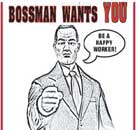Economy
Iron ore trio's stance may trigger anti-monopoly probe
(Xinhua)
Updated: 2010-04-16 16:30
 |
Large Medium Small |
BEIJING - After the world's top three iron ore suppliers followed on each other's heels and announced new pricing mechanisms for this year, China may take legal action to remedy growing signs of monopolistic behavior by the iron ore miners.
Yao Jian, spokesman of the Ministry of Commerce (MOC), said on Thursday the ministry's anti-monopoly department is conducting research on whether the three miners's new pricing model is monopolistic.
"The 80 percent to 90 percent price hikes the three giants are asking for under the new pricing scheme will almost certainly drive the Chinese steel mills, who survive on only three percent profit margins, to desperation," a manager with the Jigang Group Co., Ltd in Shandong Province, told Xinhua. The manager declined to be named,
The meager profits of the steel mills is in stark contrast with the up to 50 percent profit margins the iron ore suppliers enjoyed last year, when the world economy was struggling with the worst economic downturn in decades.
Manager of another state-owned steel mill, who also required anonymity, told Xinhua the three giants have absolute power in setting iron ore prices, leaving China, the world's biggest iron ore consumer, and other buyers little room to bargain.
"If the top three continue to seek hefty price hikes through monopolistic-colored moves, China may resort to antitrust laws to safeguard their legitimate interests, said Xu Xiangchun, chief analyst at Mysteel.com, China's iron and steel trade portal.
According to China's Anti-monopoly Law, monopolistic conduct may involve monopolistic agreements, abuse of dominant market positions, and market concentration that eliminates or restricts competition.
Under the law, China can conduct anti-monopoly investigations into foreign companies if they have restrained or negatively impacted Chinese companies' competitiveness.
But the anti-monopoly investigations require much work, including the gathering of information on whether the three miners have manipulated iron ore prices and the pricing mechanism, whether they have set up alliances or reached agreements, and whether these actions have caused a severe impact on China's economy, a person close to the nation's antitrust authorities told the Economic Information Daily on Tuesday.
A manager in the import and export department of Beitai Iron & Steel Group Co. Ltd, a state-owned steel mill with an annual capacity of over 10 million tonnes, told Xinhua he would not consider an antitrust probe an effective means to rein in price hikes, as the three miners's control of global iron ore resources gives them power over pricing.
Even though iron ore's imported prices have climbed by 20 percent to $96 per tonne on average in the first quarter, customs data shows China imported 155 million tonnes in the same period, a rise of 18 percent year on year.
The manager of the Beitai mill also said it would be tough to collect evidence of price manipulation, as the "Big Three" may have "reached tacit agreement" over prices.
Despite the difficulties, the Economic Information Daily quoted an anonymous insider saying the three miners' move has certainly brought the condemnation of global steel mills.
European steel makers on March 31 demanded an EU antitrust probe into possible monopolistic behavior by the three miners.
"If the confrontation continues, the three miners may face more anti-monopoly probes," he said.












